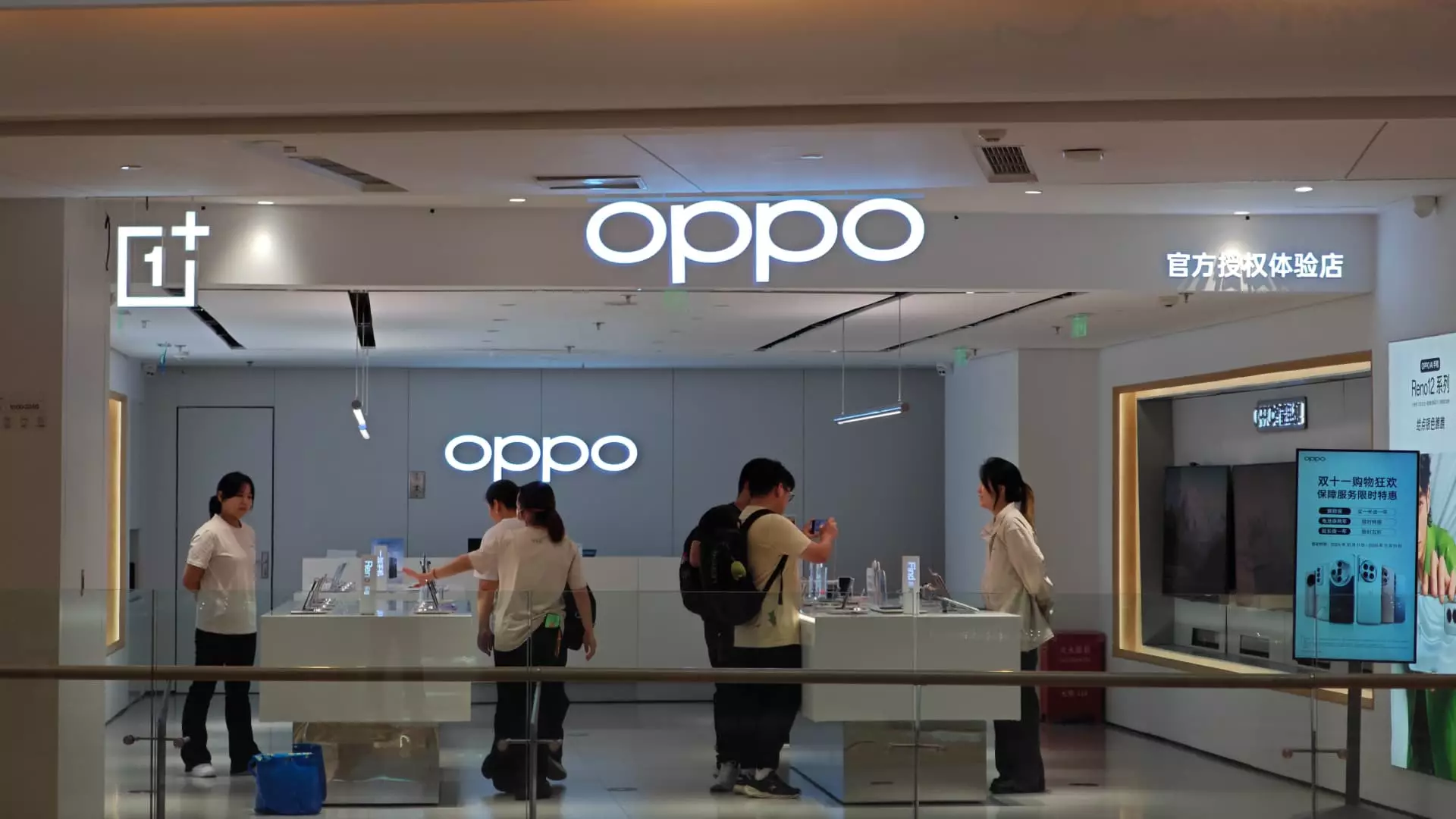In an era where artificial intelligence (AI) is at the forefront of technological innovation, Chinese smartphone manufacturer Oppo is intensifying its AI initiatives. Weekly discussions with tech giants such as Google and Microsoft highlight Oppo’s commitment to leveraging AI capabilities for their soon-to-be-launched flagship phone overseas. This strategic collaboration indicates a broader trend in the tech industry, where companies like Apple and Honeywell are racing to integrate generative AI—technology capable of generating human-like responses—into their products. By actively engaging with these leading firms, Oppo is not only positioning itself as a player in the AI race but also demonstrating a commitment to understanding and addressing consumer needs through the use of AI.
Billy Zhang, the president of Oppo’s overseas market, articulated the company’s strategy by stating that consumer insights will shape product development powered by AI. This consumer-centric approach is particularly advantageous, as it allows Oppo to engage in dynamic product development. The company’s recent expansion efforts across Europe indicate its ambition to capture a larger share of the smartphone market, although immediate plans for entry into the U.S. remain murky. Notably, with 60% of its shipments originating from diverse markets including Southeast Asia and Europe, Oppo is already well-positioned to adapt to varying consumer demands.
Oppo’s current standing as the fourth-largest smartphone manufacturer globally, accounting for 9% of total shipments, reveals its growing influence in the market. The competitive landscape, led by giants such as Samsung and Apple, necessitates ongoing innovation and adaptation. This environment pushes companies to not only keep pace with technological advancements but also foresee future trends, notably in AI capabilities.
Despite facing U.S. restrictions on high-end chip exports, experts argue that Chinese firms like Oppo may have an advantage when it comes to practical, consumer-focused applications of AI technology. The company’s upcoming flagship, the Find X8 series, promises features such as AI writing tools and text-to-speech functionalities, developed in partnership with Google and Microsoft. These advanced integrations signify an important milestone in Oppo’s product offering, enhancing user experience and demonstrating the practical value of AI in everyday technology.
Interestingly, Oppo is not merely outsourcing its AI capabilities; it has made significant investments in developing its AI models since 2020. Furthermore, the establishment of an AI center earlier this year underscores the importance that Oppo places on proprietary technology development. With intentions to incorporate generative AI into an impressive 50 million devices, the potential for expansive impact is substantial.
According to research from Counterpoint, shipments of generative AI-powered smartphones are projected to explode from just 46 million devices last year to a staggering 732 million by 2028. This statistic highlights a transformative shift in consumer technology, emphasizing the increasing reliance on AI functionalities within smartphones. Competing brands are also gearing up; for instance, Apple is set to release software updates that enhance AI features, while other manufacturers like Honor are exploring sophisticated AI capabilities in their operating systems.
Oppo’s ambitions extend beyond consumer products. The integration of AI into manufacturing processes reveals a forward-thinking strategy in operational optimization. With automation enhancing quality, reducing costs, and increasing production efficiency, the implications for the broader tech manufacturing sector are significant. The replacement of approximately 8% of human labor with automation in production lines exemplifies a trend toward a more streamlined and efficient manufacturing landscape.
By launching a digital management system across its factories—currently being implemented in countries like India and Indonesia—Oppo is positioning itself for enhanced global competitiveness. The integration of smart technologies in its production processes not only reduces costs but also allows quicker responses to market demands. This agility is crucial in today’s fast-paced consumer electronics market, where speed and efficiency can greatly influence a brand’s success.
Oppo’s ability to transition from a predominantly manual labor model to a digitalized manufacturing approach has resulted in a remarkable decrease in production time. By cutting the turnaround from 16 days to just six, the company is able to correctly align itself with evolving consumer preferences without the traditional risks associated with production forecasting.
As the tech industry continues to invest in AI, companies like Oppo are poised to play a pivotal role in shaping the future of smartphones. By focusing on AI integration to enhance user experience and streamline operations, Oppo is not just responding to current trends but actively forging a path towards a technologically advanced future. As the landscape evolves, the success of companies will likely hinge on their ability to innovate and harness the potential of AI effectively, making Oppo a company to watch in the coming years.

